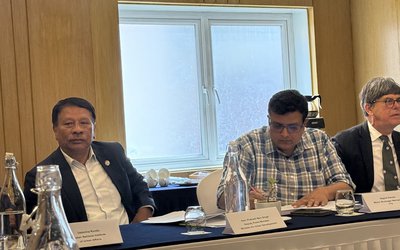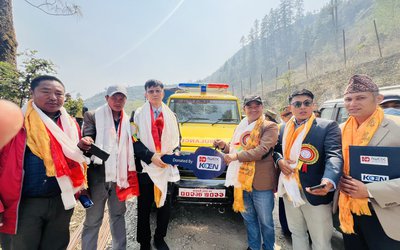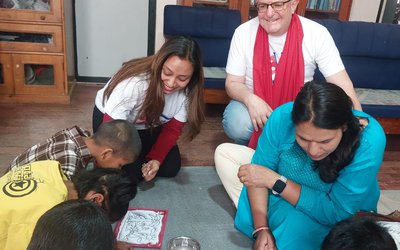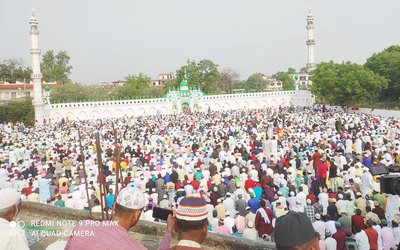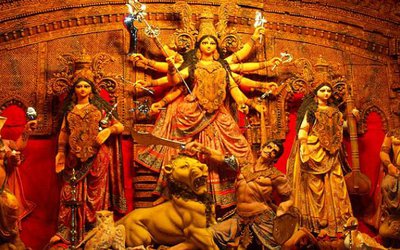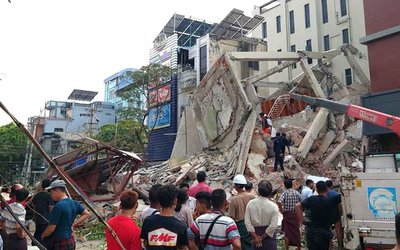
In November 1863, Abraham Lincoln gave a speech in the city of Gettysburg. He consecrated the definition of democracy as "the government of the people, by the people and for the people." But the question now is, who are the people? This phrase has become one of the most controversial definitions of our time. Democracy is a process, not a product, and that process is always in progress. We aspire to a democracy in which every citizen has the freedom to voice their opinions and may actively participate in the social, political, economic, and environmental issues that directly influence their lives.
At all levels of government, political decision-making processes should be centered on the interests and needs of the public. The idea that citizens' concerns serve as the foundation for change is at the core of democracy. In fact, participatory processes allow citizens to influence change and participate in decision-making.
Representative democracy is not adequate in today's society to ensure effectiveness and efficiency in public management. Public policy decisions have an impact on all of us. Representative democracy has not been able to adequately represent Nepalese citizens since its inception. The biggest festival of democracy for us is the election. Nepalese people have been accustomed to electing representatives since 1959.
Participatory democracy is practiced by Nepalese people only in elections. Casting a vote in the name of a dead person, casting a vote in the name of a relative living abroad, or one person voting repeatedly has become common practice in our elections system. The past 34 years have shown that the people who have won by proxy votes have focused on transforming themselves, their families, and their close group rather than transforming society. Nepalese People are used for political movements, election rallies, and party rallies. So far Nepalese people are used, misused, and abused to be part of the mob system.
All political parties should concentrate on true participatory democracy, a political system that gives citizens more direct, active, and extensive access to the political process. It is an intermediate model between representative democracy and direct democracy. Participatory democracy is frequently viewed as a viable option for overcoming the challenges of representative democracy. This system was specially developed in Athens, where each citizen was involved in the exercise of power.
The content and opinions that you share on your social networks about the political sphere contribute to the construction of democracy. Democracy is all about participation and We have a greater amount of citizen participation due to the use of the internet and social media. Intense polarization weakens democracy. In healthy democracies, opposing groups are seen as political adversaries with whom to compete and sometimes negotiate. However, in deeply polarized democracies, political opponents are seen as an enemy to be defeated.
Technology has been bringing human beings closer to the exercise of power. The information brings them closer to making decisions. With participatory Democracy,
It will finally be possible to pursue freedom, equality, and collective aspirations without being constrained by a powerful government or by political parties controlled by individuals or organizations. Inequality in access, both political, economic, and power is another reason for democracy to be what it is today.
The most significant factor contributing to political temporality is the way representative democracies routinely disregard the interests of future generations. Future citizens are denied rights, and in the vast majority of nations, there are no organizations that represent their worries or future points of view on the issues that will surely affect their lives. Constitutional and political doctrine both generally acknowledge that the idea of representation serves as the foundation for democracy. Participation is a suggestive idea that is widely accepted, maybe as a result of the general lack of language used to describe it. In all democracies, people want a better quality of life for the future, unhindered access to services, and active and effective governance institutions.
An active and involved citizenry is a symptom of democratic health. There is no doubt that Participatory democracy strengthens political representation. The only way to defend the interest of the people depends on really listening to the inhabitants by involving them and allowing them to practice participatory democracy. The problem we have in our democracy today is that democracy can often die democratically. Because sometimes we elect fascist and anti-democratic leaders and we do not allow those who want to participate in democratic systems to participate.
There is no democracy without parties. Multiparty democracy is increasingly deficient in functioning at its fundamental levels. The Parties we have are failing in their program, management, generating and implementing adequate solutions, and they are also failing in their ability to represent the citizens to provide meaning to democracy. When we involve citizens in the political decision-making process, they feel powerful. In the end, it is not harmful to encourage citizens to participate in political life and to increase their influence over the decision-making process.
When you decide for yourself, you won't be able to blame others. you have to be accountable for your own decisions. This is the only way the political system makes better decisions and better decisions lead to a prosperous society.

Deepak Raj Joshi
(The author is a lecturer and IT consultant. He also writes fiction under the name of Kapeed Joshi. He can be reached by email at info@dipakjoshi.com.np.)
- Criminal Governance & Neopatrimonialism
- Jul 29, 2024
- Rise Of Populism Boon Or A Bane
- Aug 13, 2023
- The Collapse Of Confidence And The Rise Of RSP
- May 17, 2023
- Lottocracy
- Apr 30, 2023
- Political Rot With Social Deterioration
- Jan 19, 2023



